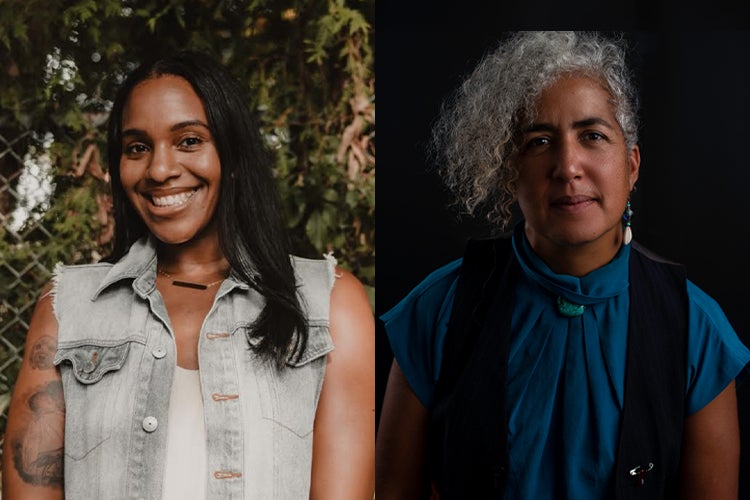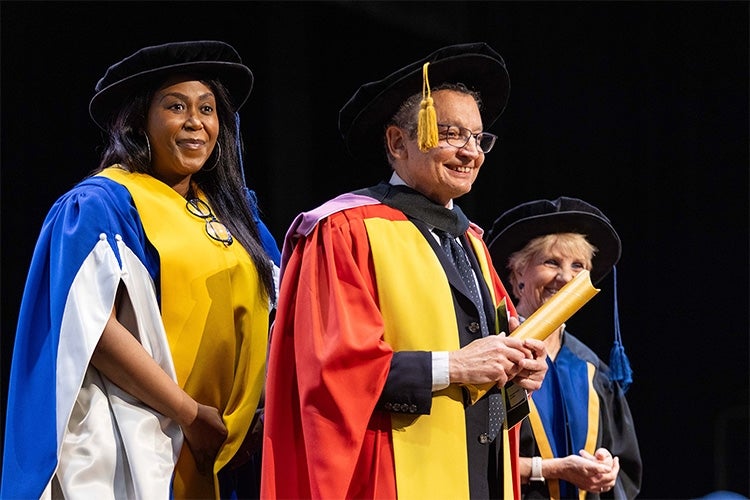
L-R: Jade Nixon and kara lynch (supplied image, Melissa Lukenbaugh)
Jade Nixon and kara lynch recognized by Black Research Network
Published: July 26, 2024
Jade Nixon, a PhD candidate at the University of Toronto’s Women and Gender Studies Institute, and kara lynch (spelled in lower-case), a New York-based artist and associate professor emerita of video and critical studies at Hampshire College, have been named inaugural Black Indigenous Waterways post-doctoral fellow and artist-in-residence, respectively.
The Black Indigenous Waterways research opportunity was developed by U of T's Black Research Network and led alongside the Indigenous Research Network, a U of T institutional strategic initiative. It aims to explore the relationships forged between Black and Indigenous peoples through historical encounters across the Americas, focusing on avenues such as place, identity, and environmental justice.
Nixon’s doctoral research aims to centre Black women’s theories of gathering, place-making, and their relations with the Atlantic Ocean. For her research, she will travel to Martinique, an island in the Lesser Antilles of the West Indies, to learn more about the histories of the Arawak Caribs. “What excites me the most is to be able to commune with these lands and waters and talk with people who have in-depth knowledge of the Indigenous history of Martinique,” Nixon said. “I will be able to turn to the people who have lived and place-based expertise that I can learn from and who have the desire to share what they know with me.”
For lynch, the artist-in-residence role offers an opportunity to consider how to push boundaries and broaden resources to maximize learning potential. “After seeing what gets unearthed when students are open to approaching material in an interdisciplinary way, our proposal to students is to consider how to visualize data and information,” lynch says. “That shift is what is necessary in a liberation curriculum.”



